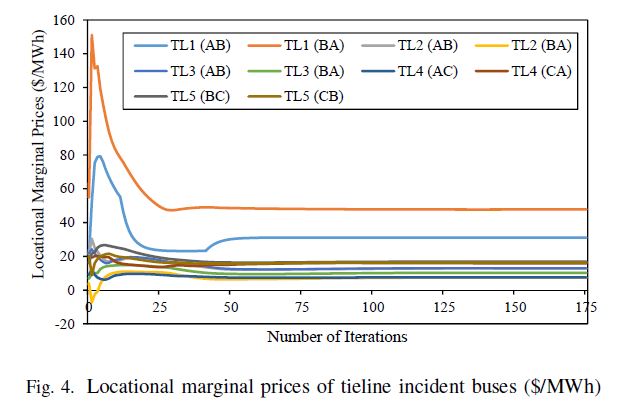
Furkan Sezer received the B.Sc. degree in industrial engineering from Bogazici University, Istanbul, Turkey in 2019. He will receive the Ph.D. degree in industrial & systems engineering with Texas A&M University, College Station, TX, USA in August 2023. His research interests include distributed optimization, game theory, information design, and electricity markets.
Recent News
-
I defended my PhD Dissertation titled “Information Design in Linear-Quadratic-Gaussian Games” on April 20, 2023. I will join United Airlines as a Senior Data Scientist-Operations Research in May 2023.
-
I made a poster presentation at TAMU ISEN Poster Competition titled “Information Design in Linear-Quadratic-Gaussian Games” on March 23, 2023.
-
I presented my paper titled “Information Preferences of Individual Agents in Linear-Quadratic-Gaussian Network Games” at INFORMS 2022 Annual Meeting (Indianapolis, Oct 2022) and at Conference on Decision & Control 2022 (Cancun, Mexico, Dec 2022).
-
My paper titled “Maximizing Social Welfare and Agreement via Information Design in Linear-Quadratic-Gaussian Games” is conditionally accepted for publication at IEEE Trans. on Automatic Control (November 2022). The paper previously circulated with the title “Social Welfare Maximization and Conformism via Information Design in Linear-Quadratic-Gaussian Games”.
-
I made a poster presentation at Texas A&M Energy Conference 2022 for my paper titled “Social Welfare Maximization and Conformism via Information Design in Linear-Quadratic-Gaussian Games”.
- My paper titled “Information Preferences of Individual Agents in Linear-Quadratic-Gaussian Network Games” is accepted for publication at IEEE Control Systems Letters (June 2022).
- I presented my paper titled “Social Welfare Maximization and Conformism via Information Design in Linear-Quadratic-Gaussian Games” at IISE Annual Meeting & Expo 2022 (Seattle, WA, May 2022)
- I presented my paper titled “Social Welfare Maximization and Conformism via Information Design in Linear-Quadratic-Gaussian Games” at POMS Annual Meeting 2022 (Virtual, April 2022)
- I presented my paper titled “Social Welfare Maximization and Conformism via Information Design in Linear-Quadratic-Gaussian Games” at INFORMS Annual Meeting 2021 (Anaheim, CA, October 2021)
Research
1. Information Design in Linear-Quadratic-Gaussian Games(Dissertation Research)
1.1 Maximizing Welfare and Agreement via Information Design
We considered linear-quadratic-Gaussian (LQG) games in which players have quadratic payoffs that depend on the players’ actions and an unknown payoff-relevant state, and signals on the state that follow a Gaussian distribution conditional on the state realization. An information designer decides the fidelity of information revealed to the players in order to maximize the social welfare of the players or reduce the disagreement among players’ actions. We show that full information disclosure maximizes social welfare when there is a common payoff-relevant state, when there is strategic substitutability in the actions of players, or when the signals are public.
F. Sezer, H. Khazaei and C. Eksin, “Maximizing Social Welfare and Agreement Via Information Design in Linear-Quadratic-Gaussian Games,” in IEEE Transactions on Automatic Control, doi: 10.1109/TAC.2023.3270241. [pdf]
This paper’s earlier version circulated with the name “Social Welfare Maximization and Conformism via Information Design in Linear-Quadratic-Gaussian Games”.

1.2 Information Preferences of Individual Agents in Linear-Quadratic-Gaussian Network Games
Prior results show that full information disclosure is optimal under certain assumptions on the payoffs, i.e., it is beneficial for the average individual. In this paper, we provide conditions for general network structures based on the strength of the dependence of payoffs on neighbors’ actions, i.e., competition, under which a rational agent is expected to benefit, i.e., receive higher payoffs, from full information disclosure. We find that all agents benefit from information disclosure for the star network structure when the game is homogeneous. We also identify that the central agent benefits more than a peripheral agent from full information disclosure unless the competition is strong and the number of peripheral agents is small enough. Despite the fact that all agents expect to benefit from information disclosure ex-ante, a central agent can be worse-off from information disclosure in many realizations of the payoff state under strong competition, indicating that a risk-averse central agent can prefer uninformative signals ex-ante.
F. Sezer and C. Eksin, “Information Preferences of Individual Agents in Linear-Quadratic-Gaussian Network Games,” in IEEE Control Systems Letters, 2022, doi: 10.1109/LCSYS.2022.3183539.[pdf]
| Information Design over Star Network | Ex-post Information Preference Estimates |
|---|---|
1.3 Robust Optimization Approach to Information Design in Linear-Quadratic-Gaussian Games
Information design in an incomplete information game includes a designer with the goal of influencing players’ actions through signals generated from a designed probability distribution so that its objective function is optimized. If the players have quadratic payoffs that depend on the players’ actions and an unknown payoff-relevant state, and signals on the state that follow a Gaussian distribution conditional on the state realization, then the information design problem under quadratic design objectives is a semidefinite program (SDP). We consider a setting in which the designer has partial knowledge on agents’ utilities. We address the uncertainty about players’ preferences by formulating a robust information design problem. Specifically, we consider ellipsoid perturbations over payoff matrices in linear-quadratic-Gaussian (LQG) games. We show that this leads to a tractable robust SDP formulation. Using the robust SDP formulation, we obtain analytical conditions for the optimality of no information and full information disclosure. The robust convex program is also extended to interval and general convex cone uncertainty sets on the payoff matrices. Numerical studies are carried out to identify the relation between the perturbation levels and the optimal information structures.
F. Sezer and C. Eksin. “Robust Optimization Approach to Information Design in Linear-Quadratic-Gaussian Games,” in arXiv 2303.05489 (2023).[pdf]
2. Mechanism Design for Decentralized Electricity Markets
2.1 Efficient and Incentive Compatible Mechanisms for Coupling Electricity Markets
The coordinated operation of interconnected but locally controlled electricity markets is generally referred to as a coupling. In this paper we propose a new decentralized market mechanism for efficient coupling of independent electricity markets. We show the mechanisms outcome converges to the optimal flows between markets given the reported supply and demand functions from each individual market clearing. In light of incentive compatibility issues that result from pricing power flows across interconnection lines with locational marginal prices, the mechanism features incentive transfers that compensate each given market with its marginal contribution. We show that these transfers imply truthful participation in the mechanism is a Nash equilibrium. The proposed decentralized mechanism is implemented on the three-area IEEE Reliability Test System where the simulation results showcase the performance guarantees of the proposed mechanism.
Alfredo Garcia, Roohallah Khatami, Ceyhun Eksin and Furkan Sezer, “An Incentive Compatible Iterative Mechanism for Coupling Electricity Markets,” in IEEE Transactions on Power Systems, vol. 37, no. 2, pp. 1241-1252, March 2022, doi: 10.1109/TPWRS.2021.3100782. [pdf]

3. Multi-Agent Reinforcement Learning
3.1 Policy Gradient Algorithms for Non-cooperative Multi-agent Reinforcement Learning
We consider networked multi-agent reinforcement learning problem, in whichagents share their policies via communication network. Agents employ actor-critictype of an algorithm under the multi-agent setting of a Markov game. We show theconvergence of the algorithm to Nash equilibrium in Markov potential games.In numerical experiments, we simulated a networked Cournot game, an example ofpotential games. Numerical results verify the convergence to Nash equilibrium.
Sarper Aydin, Furkan Sezer, Jiachen Xi, Prachi Dutta, Decentralized Policy Gradient Algorithm in Markov Potential Games with Networked Agents, 2022
Presentations
- Social Welfare Maximization and Conformism via Information Design in Linear-Quadratic-Gaussian Games
- INFORMS Annual Meeting 2021, Anaheim, CA, USA, Oct 26, 2021
- 32nd POMS Annual Conference, Virtual, April 24, 2022
- IISE Annual Conference & Expo 2022, Seattle, WA, USA, May 22, 2022
- Information Preferences of Individual Agents in Linear-Quadratic-Gaussian Network Games
- INFORMS Annual Meeting 2022, Indianapolis, IN, USA, Oct 17, 2022
- 61st Conference on Decision and Control, Cancun, Mexico, Dec 7, 2022
Contact
E-mail: furkan.sezer@tamu.edu
Linkedin profile
Google Scholar profile
Semantic Scholar profile
Github profile